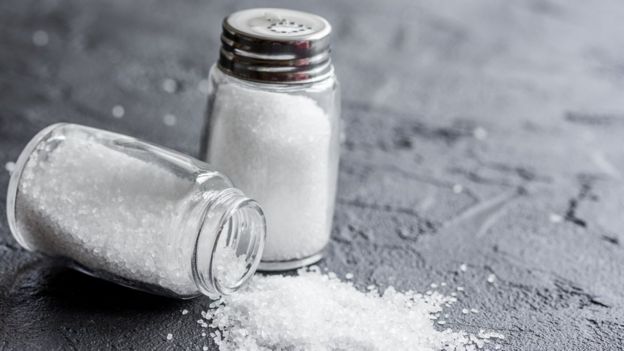
Are you someone in middle age who keeps putting off that planned health kick for another day?
If so, a couple of new studies may give you a sense of urgency.
One paper found that elevated blood pressure in middle age increases the risk of dementia, while another says being frail at this time raises your chances of an early death.
So how bad is a lack of fitness in mid-life and is it condemning you to bad health in the future?
A study published in the European Heart Journal found those who were aged 50 with a systolic blood pressure of 130mmHg or above were nearly one-and-a-half times more likely to develop dementia than those with ideal blood pressure.
It's noteworthy that this is below the level of blood pressure considered to be high in the UK (140mmHg).
Researchers suggested a possible explanation for the link was that raised blood pressure could cause damage from "silent" or mini-strokes which can easily go un-noticed.
It's worth pointing out that the study of 8,639 people shows a link between elevated blood pressure at 50 and dementia but cannot prove cause and effect.
Researchers found no such association for people who were aged 60 or 70.
And any increase in risk needs to be seen in the context of your overall likelihood of getting dementia at some point in your life.
It is estimated that the risk of getting Alzheimer's, the most common form of dementia, is one in 10 for men and one in five for women from the age of 45.
Nevertheless, Alzheimer's Research UK said it added to the evidence of a link between high blood pressure and dementia.
Frailty is known to be a health risk to people in later life because, among other things, it increases the likelihood of falls.
But a new paper, which examined data from 493,737 people involved in the UK Biobank study, found that being frail earlier in life also appeared to be a predictor of ill health and early death.
The study, published in the Lancet Public Health journal, defined frailty as anyone who had at least three of the following health problems:

The key for those who are unfit in middle age is making healthy changes "as soon as possible"
After accounting for other factors (including socio-economic status, a number of long-term conditions, smoking, alcohol and BMI), researchers found men between the ages of 37 and 45 were over two-and-a-half times more likely to die than non-frail people of the same age.
The figures were similar in all the other age groups (45-55, 55-65, and 65-73).
Similar associations were found in women who were judged to be frail and were 45 or older.
Frail people were also far more likely to have conditions such as multiple sclerosis and chronic fatigue syndrome.
Lead author of the study, Prof Frances Mair, from the University of Glasgow, said the findings suggested there was a need to both identify and treat frailty much earlier in life.
Dr Peter Hanlon, a co-author on the frailty study, said the good news is that frailty might be reversible in people, particularly if it is identified early.
The key for those who are unfit in middle age is making healthy changes "as soon as possible", says Ilaria Bellantuono, professor of musculoskeletal ageing at the University of Sheffield.
"The key is a healthy diet and exercise. It's the only thing we know that works," she says.
Losing weight, stopping smoking, cutting back on alcohol, exercising regularly and eating less salt are just some of the things you can do to lower your blood pressure.
And similar advice applies to reducing your risk of dementia and helping to keep your brain healthy as you age, says Dr Laura Phipps from Alzheimer's Research UK.

Cutting salt is one of the ways we can lower our blood pressure
But the million pound question is how do you get people to change their habits?
Prof Bellantuono said that for some, health warnings won't be enough.
Instead, finding an "internal motive that speaks to them" will be key to getting some people to exercise and be healthier.
"That could be picking up the grandchildren or going to watch the football," she adds.